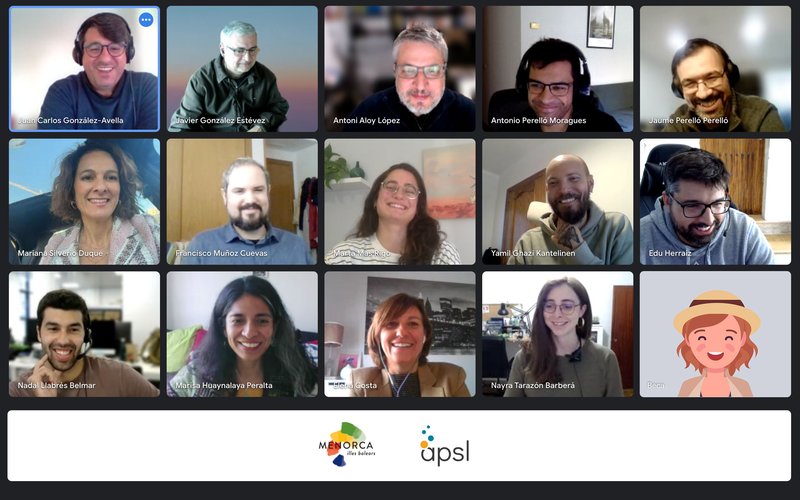Dec. 1, 2022 · 2 min read

Beca, the virtual assistant of the Menorca tourism information official website is among the 4 corporate chatbots of the sixth edition of the Planeta Chatbot Awards final. Created by APSL & Top Tourism Marketing for Menorca destination in 2021, it is its first time participating in this awards, that seek to recognise the best initiatives in the hispanic conversational tech space.
The VisitBOT-Menorca project, launched in the International Tourism Fair Fitur, aimed to extend the information services for the visitors of the island, using the VisitBOT product, registered as a solution for intelligent tourism destinations, by the Spanish Ministry of Industry, Commerce and Tourism.
The chatbot started working in October 2021, after a 5 months test phase. Located in Menorca.es, Beca answers querys in Spanish, Catalan and English languages. On top, it allows to choose one of the island's beaches from an image carrousel and provides updated information about its bathing conditions among other features.
As VisitBOT has its own implementation and design, it offers versatility to adapt to the communication needs of each tourism destination in any time of the season or facing unexpected situations. It also allows to add or adjust functionalities easily in order to cater the needs of the target markets and the characteristics of its potential visitors (facilitates reaching the tourism information office via email, phone, send questions by voice or including Beca in different environments / channels...)
VisitBOT-Menorca is the result of the joint effort of a multidisciplinary team, joining destination management, marketing, artificial intelligence, computational linguistics, software development and cloud architecture experts together.

VisitBOT-Menorca as well as other APSL chatbots automatically detect the language of the user question. This means the chatbot answers in the same language using a unique inference engine and a single neural network ( In order to reduce the response time, different neuronal networks per language have not been concatenated in this case).
Thanks to the cloud architecture and the implementation of algorithms to optimise the answering time, chatbots always answer in less than 2 seconds. In fact, the time was initially even less but some delay had to be applied to simulate a better user experience, as we are used to chat with other humans with longer response time.
In order to create bots, APSL has designed and adapted different models for the analysis and the natural language processing, retraining Transformer neural networks. This makes it possible to interpret the intentions behind the questions of the users. The bespoken NLP engine (yed.ai) developed by APSL integrates different techniques, using Deep Learning and Machine Learning.
Moreover, the chatbot offers its own backend system that makes it easy for the chatbot manager of the destination to control the performance and change any response in matter of seconds if necessary.